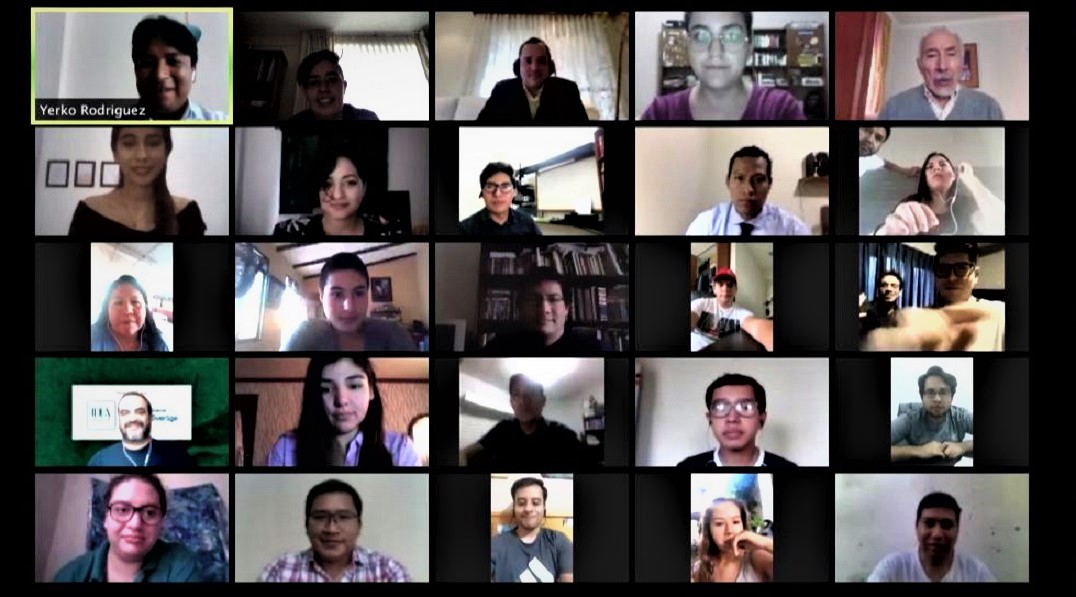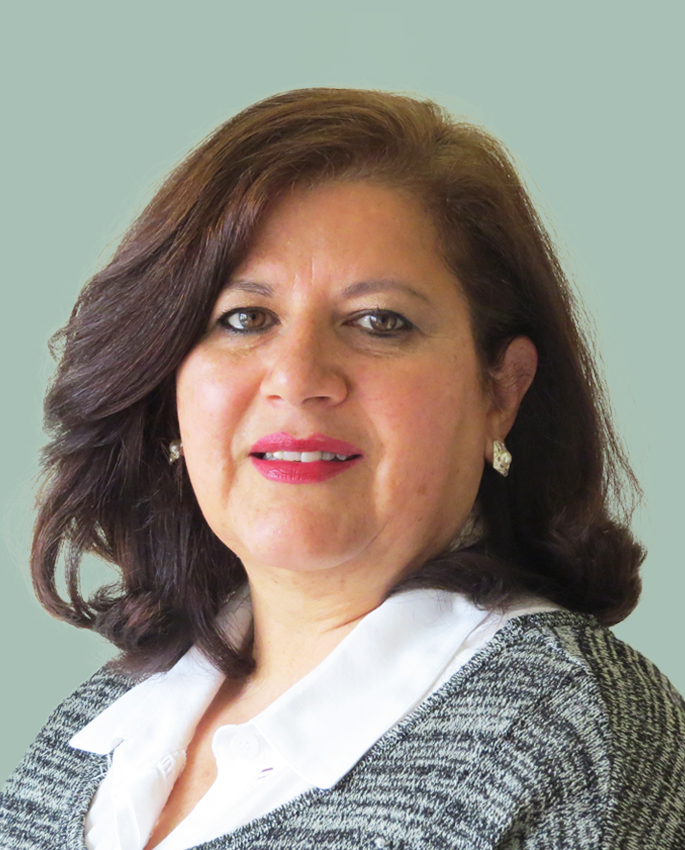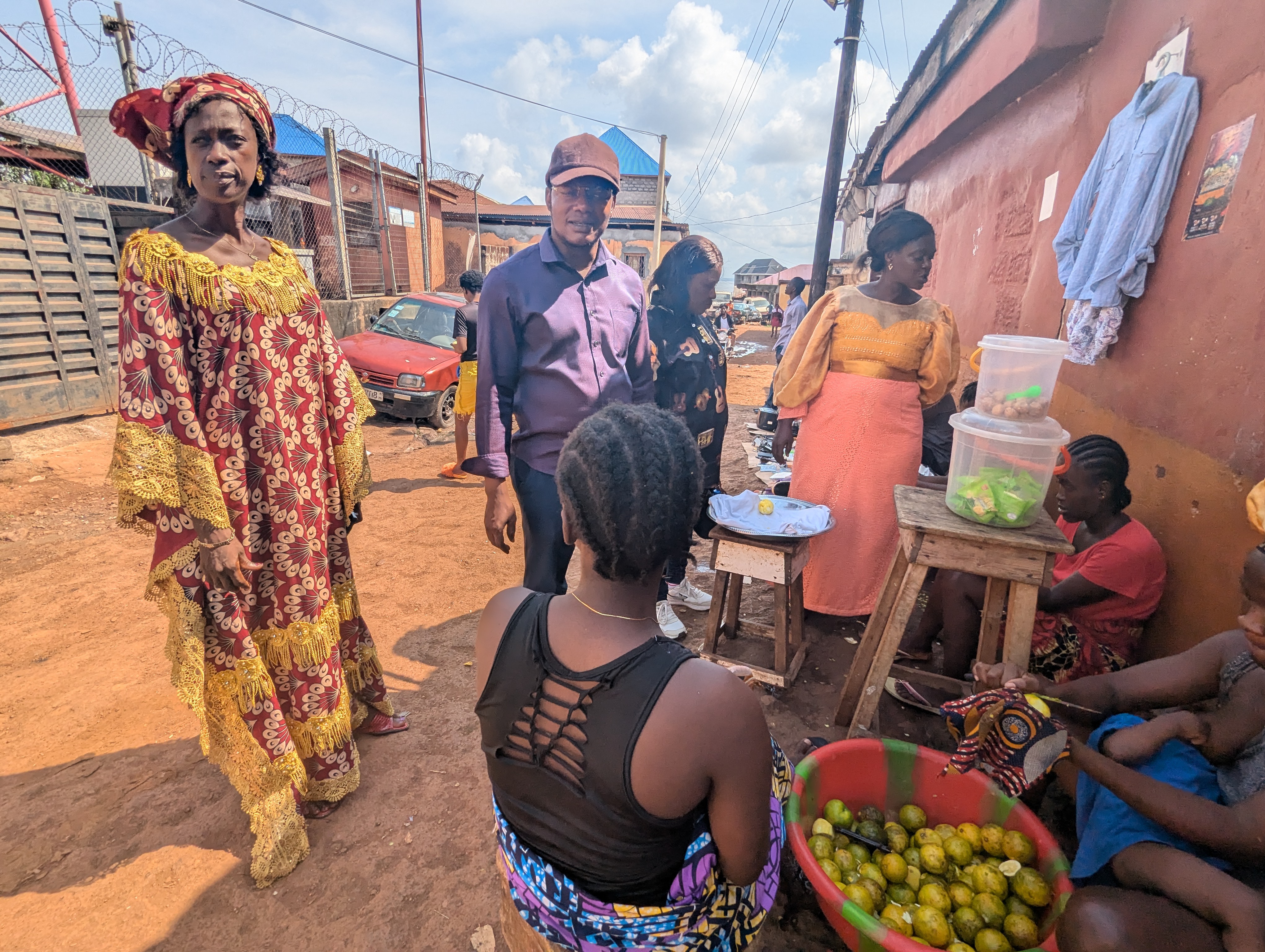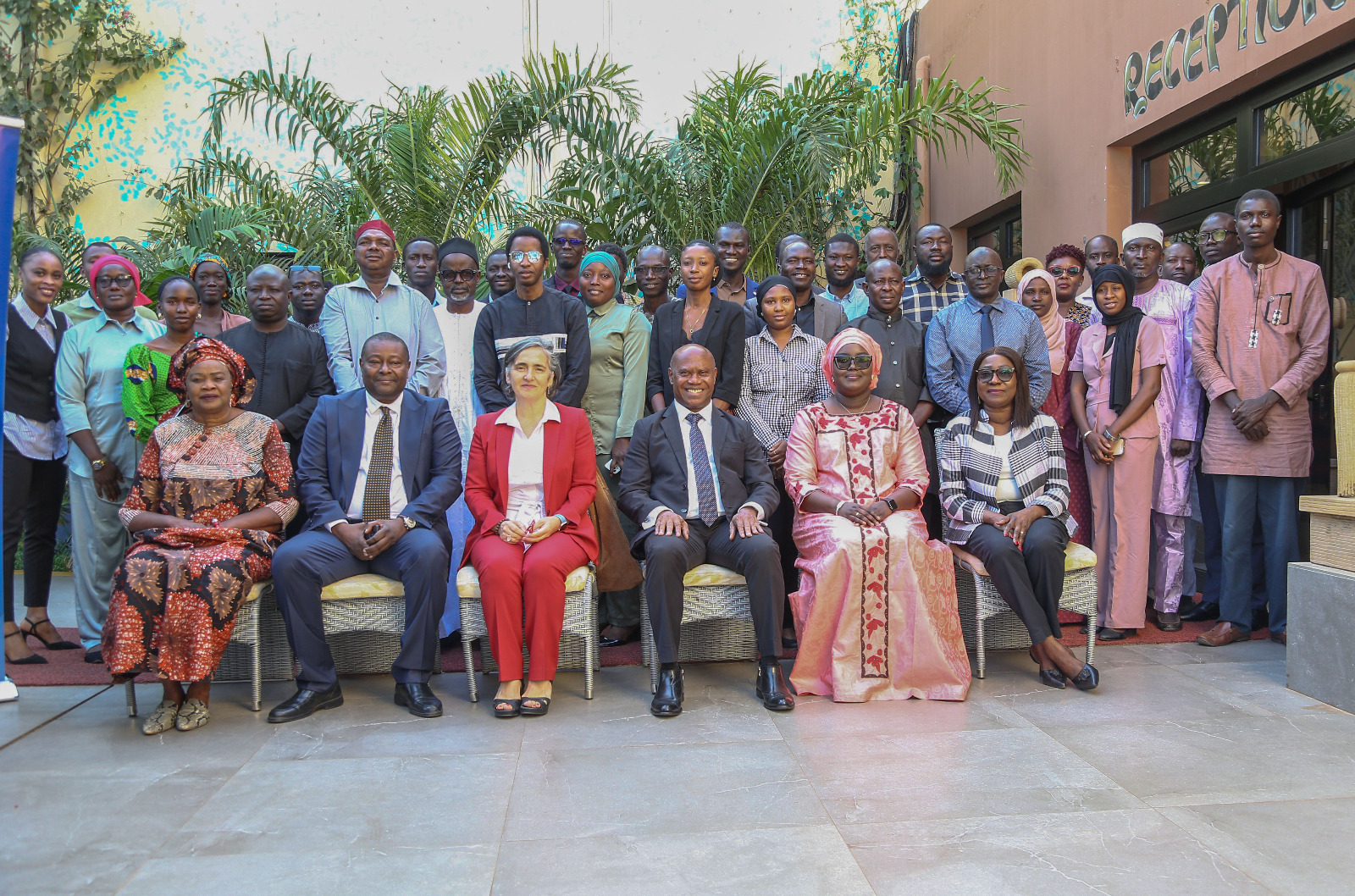Advancing the Dialogue among Young People in the era of COVID-19 and Challenges to Democracy

As part of the #Protagonistas: Parity-Power-Youth campaign, an initiative undertaken by International IDEA and the Coordinadora de la Mujer, with backing from the Swedish Embassy, five virtual meetings were held in the autonomous regions of La Paz, Cochabamba, Santa Cruz, Tarija and El Beni.
Este artículo está disponible en español.
All together, 245 young people participated in these five gatherings, who along with a team from International IDEA, generated spaces for reflection and analysis based on their experiences, which have been enriched by the visions of regional communities on matters of diversity and representivity, driven by their activism in cultural, economic and political issues. To this end, a document was provided in advance with up-to-date, accurate and analytical information on the impact of COVID-19 on democracy.
Mr Gustavo Bonifaz, International IDEA’s consultant and the document’s author, shared his analysis on the potential risks and opportunities posed to democracy amid the current situation in Bolivia, on the very threshold of an electoral process, which it was hoped, would ultimately deescalate tensions brought about by the political crisis unleashed in November 2019.
Bonifaz warns that: “The coronavirus pandemic is likely to be a global crisis unlike any other since World War II, in terms of magnitude and intensity. Its effects could irreversibly transform the economy, society, culture and politics on a worldwide scale. The economic crisis will hit lower income members of society the hardest, as they depend to a large extent on the export of natural resources, and also in many cases, such as in Bolivia, their well-being revolves around an informal economy.”
The health crisis will not only impact the economy, but also democracy at various levels resulting in: “The suspension of electoral events; restrictions on the rights to mobilize, meet and assemble, on freedom of the press, on information and data protection; the executive’s growing authoritarianism; the prominence of the role of security forces and new information and communication technologies used to enforce social distancing; a window of opportunity that opens itself to corruption; the constraints imposed on civil society and in many cases local government preventing them from contributing solutions to the crisis”.
Since March 2020, when the first cases of the coronavirus were reported in Bolivia, the government has decreed a number of measures which range from obligatory social distancing at home to prevent contagion to the provision of bonus subsidies to somehow mitigate the multifaceted impact of the crisis on the lives of the Bolivian people.
However, according to Bonifaz: “Every crisis opens a window of opportunity and democracy itself can help confront such a crisis, given that one of its strengths is that, in the medium to long term, it is a more flexible and resilient system.
Within this framework, the youth—both male and female—shared their fears, hopes and visions on how the world, the wider region and Bolivia itself are facing up to the effects of the pandemic, which undoubtedly is a significant contribution in defining the direction of public policies and the future course of action undertaken by social and political stakeholders and decision-makers.
Among the more relevant issues addressed during the various virtual gatherings are the following: The significance of advances in technology as a means to confront the global health crisis; the need to identify suitable economic policies within the context of the pandemic; the significance of youth driven social controls; the need to raise the profile of youth and value their contribution from a local self-governance perspective; poor quality education; the shortage of opportunities for young entrepreneurs and the need to build-up leadership; the growing corruption. Moreover, they referred to the need to strengthen institutional democracy in the area of the rule of law in order to resist a crisis in the global economic system.
As part of their proposals, the youth believe that it is fundamental to create virtual communities to make their voices heard and achieve a more active participation in politics in order to incorporate their visions and paradigms, and as a means to address the infringement of human rights, especially the right to freedom of expression, with an emphasis on the right to access reliable and responsible information.
For the youth, it is essential to preserve democracy and all civil liberties, and these must not be undermined on account of the pandemic. Furthermore, they have manifested that it should not be forgotten that there are sectors of society, such as those deprived of their liberty, noting that Bolivia is a country burdened with a high level of delays in the delivery of justice, and as such, 70 per cent of the prison population has still not been sentenced.
Moreover, the youth are concerned that sectors of the population, which have been historically neglected, such as women, children and adolescents, are experiencing violent situations in their very homes, and that rural indigenous communities have not been included in the mitigating measures adopted to tackle the crisis. The solutions have reached urban areas in the cities, but not rural ones, where communities are in a vulnerable situation.
For the young people taking part in these spaces, the global health crisis is exacerbating the country’s existing social inequalities, and governance must take into account human rights above all circumstances, when looking for solutions. Otherwise, the situation could pose a much higher risk to the well-being of democracy.
It should be stressed, by way of conclusion to these five events, that International IDEA’s Senior Adviser in Bolivia, Alfonso Ferrufino, stated that: “This is a change of an era. The global crisis is unleashing an all-encompassing crisis affecting all aspects of life, be they social, political or economic. This situation brings enormous risk, which could cost many lives, but this is also a time for opportunities.”
With this message of hope and given the wealth of ideas expressed in these gatherings during the month of May, International IDEA will continue to work along these lines advancing participation and the formulation of proposals, including the presence of youth as a key protagonist.


